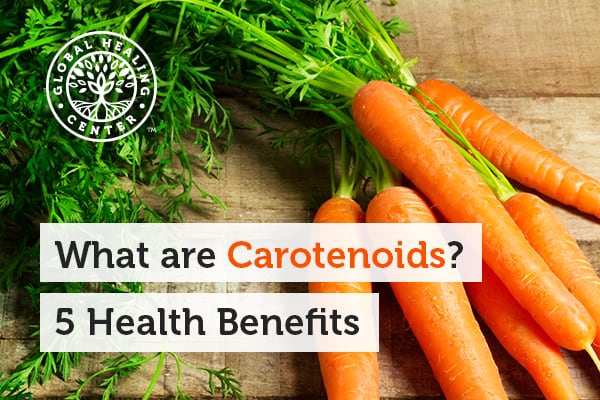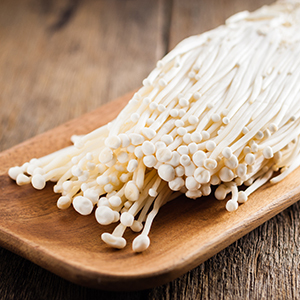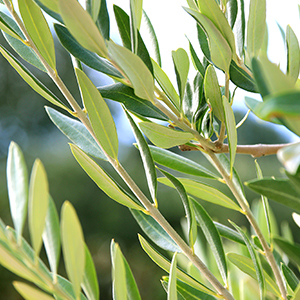
Distinguished by their orange, yellow, and red pigments, carotenoids are found in many plants, algae, and bacteria. Carotenoids act as antioxidants within the body, protecting against cellular damage, the effects of aging, and even some chronic diseases. These beneficial compounds cannot be synthesized by humans or animals, diet is the only way to get them. There are well over 600 known carotenoids, with beta-carotene, alpha-carotene, lutein, zeaxanthin, lycopene, and astaxanthin being the most common.
Why Are Carotenoids Important?
As antioxidants, carotenoids are helpful for protecting vision and combating cellular damage. [1] Recent studies have also identified carotenoids as paramount supporters for the cardiovascular system and male reproductive health. Lycopene, a carotenoid found in tomatoes (among other fruits and vegetables), has even been linked to keeping the liver, prostate, breast, colon, and lungs healthy. [2]
5 Health Benefits of Consuming Carotenoids
Carotenoids have an immense value for human health, and many people are seeking ways to incorporate these health-brimming compounds into their diet. Nutritionists, physicians, and health organizations all recommend a diet high in antioxidants, including those that are derived from carotenoids. Here are 5 of the most pronounced benefits of carotenoids.
1. Supports Eye Health
Do you remember adults telling you as a child that carrots were good for your eyes? As it turns out, this statement is founded in scientific truth. Carrots are an excellent source of carotenoids, including retinol and pro-vitamin A, both of which have therapeutic value for degenerative diseases of the retina. [3]
2. Cardiovascular Health
Population-based studies have demonstrated that carotenoids are effective for supporting cardiovascular health. Other nutrients that work together with carotenoids for protecting heart health include glutathione, vitamin E, and vitamin C. These findings have been echoed in numerous studies. [4]
3. Possible Anti-Tumor Properties?
It would be premature and overzealous to say that carotenoids prevent cancer, but it is known that carotenoids contain acetylenics, a group of metabolites known for combating tumor development. They also have action against harmful organisms and support the immune system. The combination of these properties have been so effective for fighting bacteria and immune-related infections that researchers are exploring their cytotoxic effects on multiple types of cancer. [5]
4. Male Fertility
The antioxidant effect of carotenoids may protect sperm health, according a recent 2013 study. This research found that carotenoids, vitamin C, vitamin E, selenium, glutathione, N-acetylcysteine, and zinc notably improved the participants’ chances of becoming pregnant. [6] These nutrients can be accessed easily with a diet rich in fresh fruits, vegetables, nuts, and seeds.
5. Skin Health
Studies have reported that the carotenoids beta-carotene and beta-cryptoxanthin protect skin, tissue, and cells from environmental toxins and disease. Recent research has demonstrated that non-provitamin A carotenoids, such as lutein, zeaxanthin, and astaxanthin, also have protective benefits for the skin. [7] To best support skin health, experts recommend vitamin A carotenoids from fresh vegetables and colorful fruits.
Maximize Your Carotenoid Intake
Vitamin A is considered a fat-soluble nutrient, and consuming foods containing vitamin A with fat (like grass-fed butter, coconut oil, or olive oil) increases its bioavailability. Chopping and cooking the vegetables also enhances nutrient uptake, further increasing the chances your body will use the compounds efficiently.
Best Sources of Carotenoids
Carotenoids are found in orange, yellow, and red fruits and vegetables, like pumpkin, carrots, and tomatoes. For beta-carotene, carrots and pumpkins are forefront; however, spinach, sweet potatoes, cantaloupe, and dandelion greens also represent excellent sources.
Tomatoes are renowned for their lycopene content, and often recommended as a health-fortifying food. You may be surprised to learn that watermelon and grapefruit are also excellent sources of lycopene. Dark, green leafy vegetables, such as spinach and kale, contain high quantities of lutein and zeaxanthin. If you're not following a vegan or vegetarian diet, liver and eggs are two of the most bioavailable animal sources of these beneficial nutrients. [8]
References (8)
- Armstrong GA, Hearst JE. Carotenoids 2: Genetics and molecular biology of carotenoid pigment biosynthesis. FASEB J. 1996 Feb;10(2):228-37.
- Trejo-Solís C, Pedraza-Chaverrí J, Torres-Ramos M, Jiménez-Farfán D, Cruz Salgado A, Serrano-García N, Osorio-Rico L, Sotelo J. Multiple molecular and cellular mechanisms of action of lycopene in cancer inhibition. Evid Based Complement Alternat Med. 2013;2013:705121. doi: 10.1155/2013/705121.
- Perusek L, Maeda T. Vitamin A derivatives as treatment options for retinal degenerative diseases. Nutrients. 2013 Jul 12;5(7):2646-66. doi: 10.3390/nu5072646.
- Wang Y, Chun OK, Song WO. Plasma and dietary antioxidant status as cardiovascular disease risk factors: a review of human studies. Nutrients. 2013 Jul 31;5(8):2969-3004. doi: 10.3390/nu5082969.
- Kuklev DV, Domb AJ, Dembitsky VM. Bioactive acetylenic metabolites. Phytomedicine. 2013 Oct 15;20(13):1145-59. doi: 10.1016/j.phymed.2013.06.009.
- Mora-Esteves C, Shin D. Nutrient supplementation: improving male fertility fourfold. Semin Reprod Med. 2013 Jul;31(4):293-300. doi: 10.1055/s-0033-1345277.
- Sayo T, Sugiyama Y, Inoue S. Lutein, a nonprovitamin A, activates the retinoic acid receptor to induce HAS3-dependent hyaluronan synthesis in keratinocytes. Biosci Biotechnol Biochem. 2013;77(6):1282-6.
- Abdel-Aal el-SM, Akhtar H, Zaheer K, Ali R. Dietary sources of lutein and zeaxanthin carotenoids and their role in eye health. Nutrients. 2013 Apr 9;5(4):1169-85. doi: 10.3390/nu5041169.
†Results may vary. Information and statements made are for education purposes and are not intended to replace the advice of your doctor. If you have a severe medical condition or health concern, see your physician.







